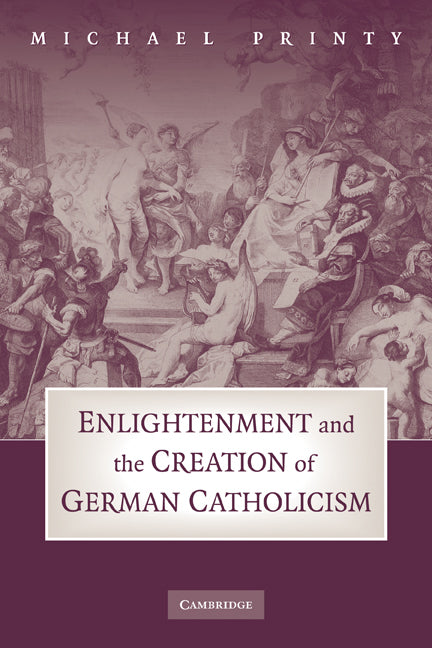Freshly Printed - allow 8 days lead
Couldn't load pickup availability
Enlightenment and the Creation of German Catholicism
This book explores the ways in which the German Catholic Enlightenment reconceived the relationship between religion, society, and the state.
Michael Printy (Author)
9780521181518, Cambridge University Press
Paperback, published 17 February 2011
256 pages
22.9 x 15.2 x 1.5 cm, 0.38 kg
'Printy has added important substantiation to these efforts, in this, the first comprehensive examination of the subject in English. Part of his contribution in bringing balance to our understanding of the German Enlightenment and German nationalism is resurrecting, clarifying, and interpreting German Catholic writers who had slipped into obscurity … Printy makes a persuasive case that Catholic intellectuals shared fully in the German Enlightenment and the rethinking of church and state in the late eighteenth century.' The Journal of Church History
This book tells the story of how eighteenth-century German Catholics rethought the Church. Educated German Catholics envisioned a Church that would solidify the link between religion, civilization, and morality. The first account of the German Catholic Enlightenment, this book explores the ways in which eighteenth-century Germans reconceived the relationship between religion, society, and the state. Seeking a balance between Germany and Rome, Catholic reformers desired a national Church that would enjoy a large measure of autonomy but would still be in communion with the universal Church. In trying to reform the Church, educated Catholics in the Holy Roman Empire questioned not only what it meant to be Catholic, but also what it meant to be German. In the process, they created German Catholicism. Arguing that German confessional identities were recast in the eighteenth century, this book forces a revision of our understanding of the German Enlightenment and its place in modern German history.
1. Introduction
Part I. Perfect Societies: Rethinking the Church and the State: 2. The liberty of the German church: Febronianism and the German Gallicans
3. The German church and the absolute state
4. Church and empire in the eighteenth century
5. Collegialism: the rise of the state, and the redefinition of the church
Part II. The Universal Church and the University Class: 6. Catholic enlightenment and the search for a bourgeois Catholicism
7. A program for reform
8. Pastors of enlightenment: reforming the secular clergy
9. Gallican longings: nation and religion in the German enlightenment
10. Conclusion.
Subject Areas: History of ideas [JFCX], Church history [HRCC2], History of religion [HRAX], European history [HBJD]


